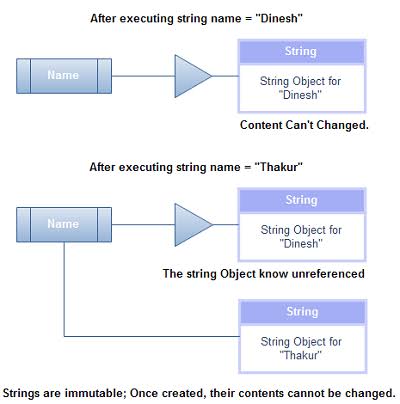What Is Immutable Strings and How It Works
In the realm of shows, recognizing the idea of immutable strings is vital for producing protected and durable applications. Immutable strings describe strings that can not be changed after they are developed, ensuring data stability and predictability within the code. This fundamental concept plays a vital function in different programming languages and provides a distinct strategy to taking care of data. By checking out the ins and outs of just how immutable strings function, one can reveal a world of advantages and opportunities that can elevate the high quality and performance of software program growth.
The Basics of Unalterable Strings
Immutable strings, as a fundamental idea in programs, are personality sequences that can not be changed when they are developed. This implies that when a string is appointed a worth, that value can not be altered. In languages like Python and Java, strings are immutable things, bring about numerous ramifications in terms of memory management and information stability.
One of the crucial benefits of unalterable strings is that they offer a complacency in information control. Given that the material of an immutable string can not be changed, it guarantees that the initial information remains intact, decreasing the risk of unexpected adjustments during program execution (Why are strings immutable in Java?). This residential property likewise simplifies debugging processes, as developers can rely on that when a string is defined, its worth will not be accidentally modified
When a new string is created based on an existing one, instead than modifying the original string, the new value is kept separately. Generally, recognizing the basics of unalterable strings is essential for mastering programs concepts and enhancing code effectiveness.
Benefits of Unalterable Strings
Building upon the security and efficiency advantages of unalterable strings, their advantages encompass enhancing code dependability and streamlining simultaneous programming tasks. By being immutable, strings can not be customized after production, which removes the danger of unintentional adjustments in the information they store. This fundamental immutability guarantees that once a string is produced, its worth stays consistent throughout the program's execution, reducing the possibilities of pests brought on by unexpected alterations.
Furthermore, immutable strings add to code dependability by making it much easier to reason concerning the state of a program. Because strings can not be transformed, programmers can rely on that a string will always hold the exact same value, simplifying debugging and maintenance initiatives. This predictability results in more reputable and stable codebases.

Execution in Programming Languages
Within different shows languages, the unification of unalterable strings is an essential aspect that influences just how data is handled and adjusted within code structures. The application of unalterable strings varies throughout various programs languages, with each language offering its very own systems to sustain this principle.

On the other hand, languages like C and C++ do not have built-in assistance for unalterable strings. Designers in these languages have to manually apply immutability by enforcing guidelines within their code to avoid direct alterations to string objects.
Finest Practices for Functioning With Unalterable Strings
When managing unalterable strings in programming languages like Java and Python, sticking to best techniques makes certain safe and effective information adjustment. Among the essential finest techniques is to make use of StringBuilder or StringBuffer rather of straight adjusting strings, specifically when handling considerable concatenation procedures. These courses give mutable options for string control, aiding to avoid unnecessary memory allotments and enhancing performance.
Another ideal method is to use string interpolation or format works provided by the language rather than manual concatenation. This not just improves readability but weblink additionally aids in avoiding common dig this risks such as unintended string adjustments. Furthermore, when collaborating with sensitive information such as passwords or API secrets, it is vital to stay clear of keeping them as simple text in immutable strings. Using safe and secure storage space systems like char ranges or specialized libraries for dealing with sensitive information helps minimize safety dangers related to unalterable strings.
Real-world Applications and Examples
Checking out sensible implementations of immutable strings in numerous sectors discloses their considerable effect on information integrity and system dependability. In the medical care field, immutable strings play a vital role in ensuring the safety and privacy of client information. By protecting against unapproved adjustments to sensitive info such as medical documents and prescriptions, immutable strings aid preserve conformity with rigorous privacy policies like HIPAA.
Banks likewise benefit from the unalterable nature of strings to enhance the safety and security of client information and deal documents. Immutable strings help prevent scams and unauthorized alterations to financial information, providing a robust defense versus cyber dangers and guaranteeing the depend on and self-confidence of clients.

Verdict
Best practices for functioning with unalterable strings include Why are strings immutable in Java? staying clear of straight modifications and utilizing methods that return brand-new string items. Real-world applications of unalterable strings consist of data encryption, caching, and string manipulation jobs.
Immutable strings refer to strings that can not be altered after they are created, making certain information stability and predictability within the code. When a brand-new string is created based on an existing one, rather than changing the original string, the brand-new value is stored individually.In languages like Java and Python, strings are immutable by default, indicating that once a string item is developed, its worth can not be changed - Why are strings immutable in Java?. Finest practices for working with unalterable strings include preventing straight alterations and using approaches that return new string things. Real-world applications of unalterable strings consist of information security, caching, and string manipulation jobs